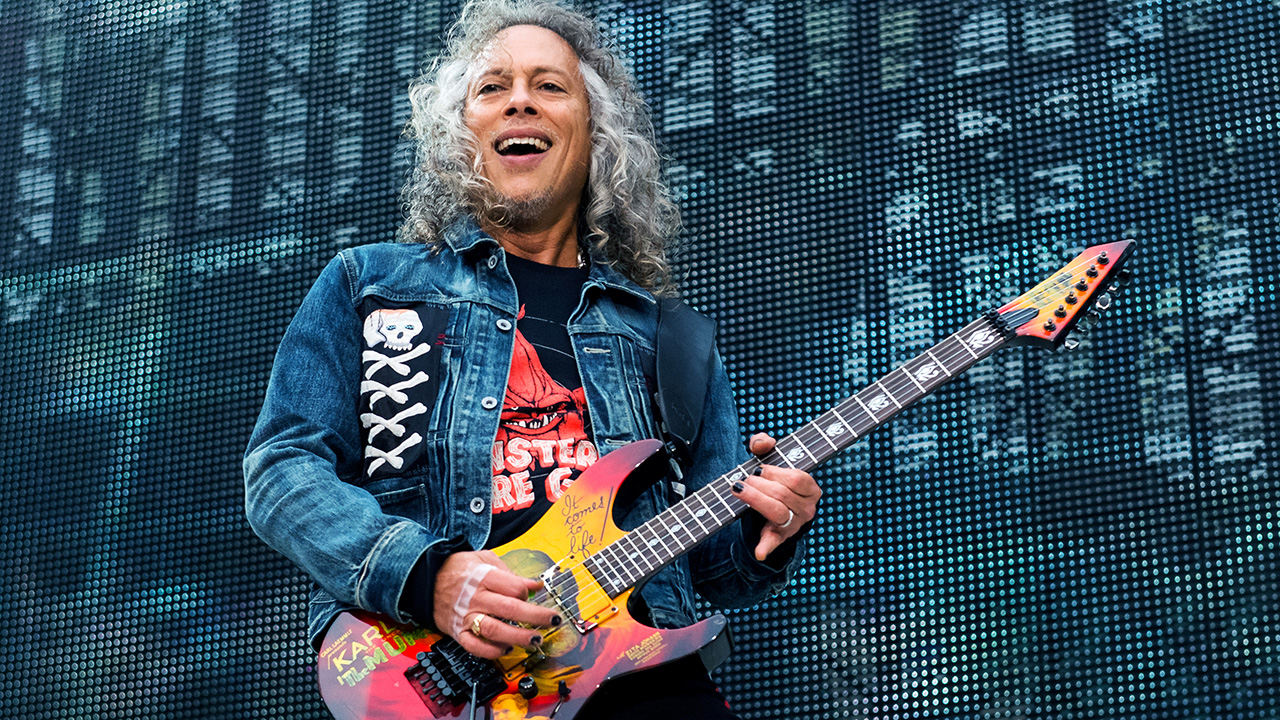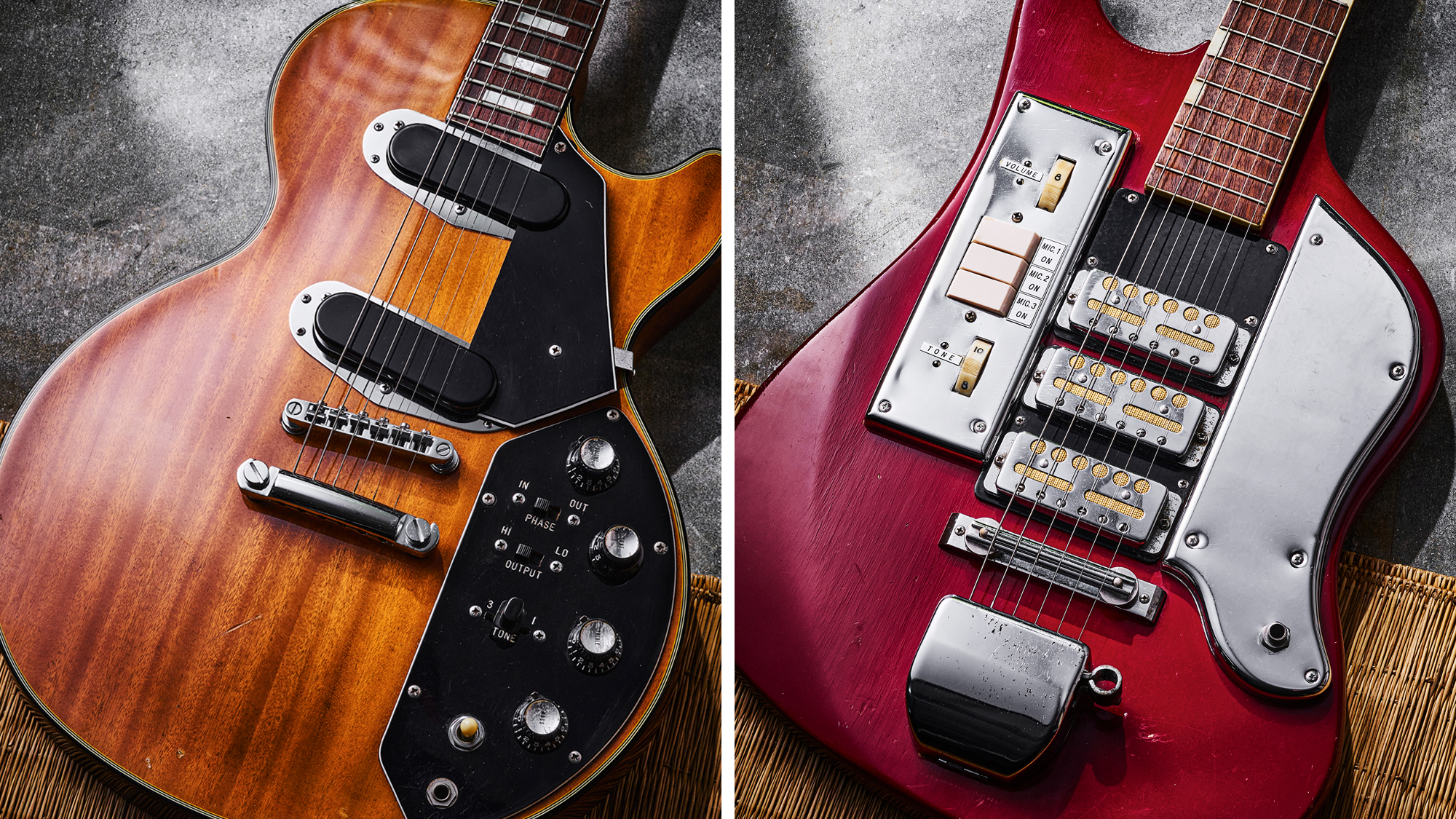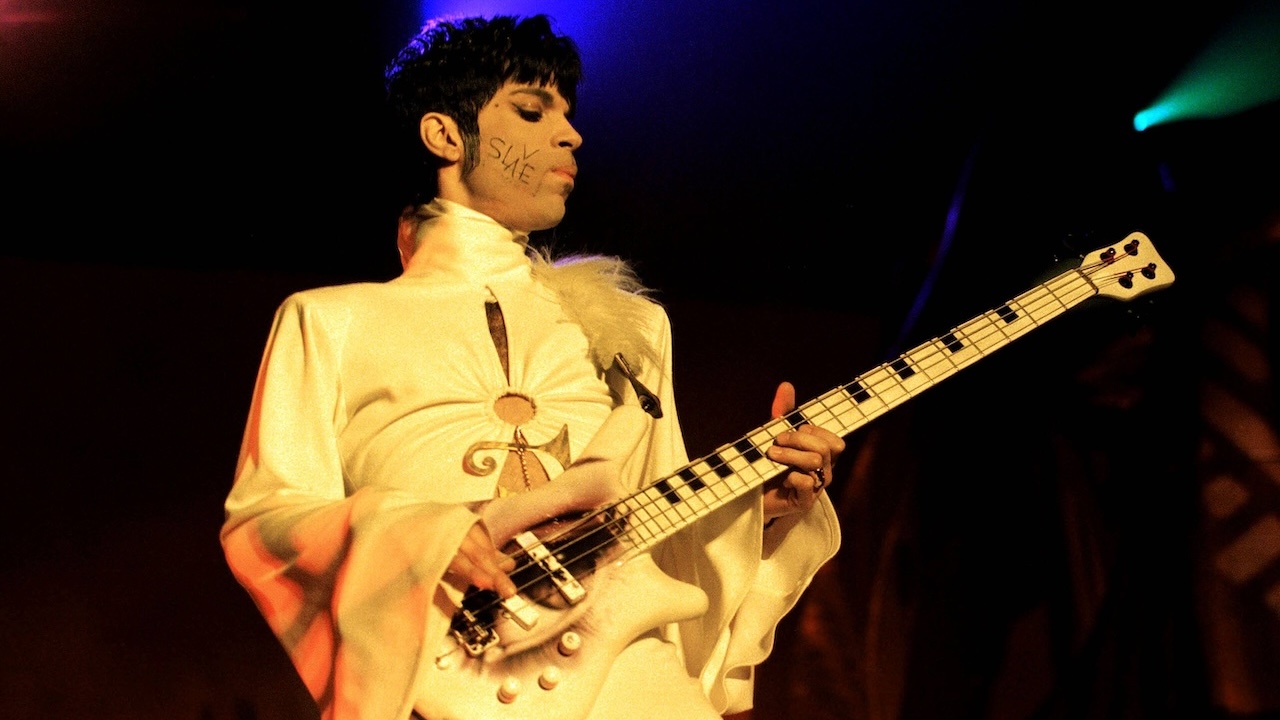“We know amps and guitars are important, but your own DNA is bigger than that”: Nuno Bettencourt on why, when it comes to tone, your personality always comes first
The Extreme guitarist drops some tone wisdom and explains why you should be looking for a rig that gets out of your way and lets you be you
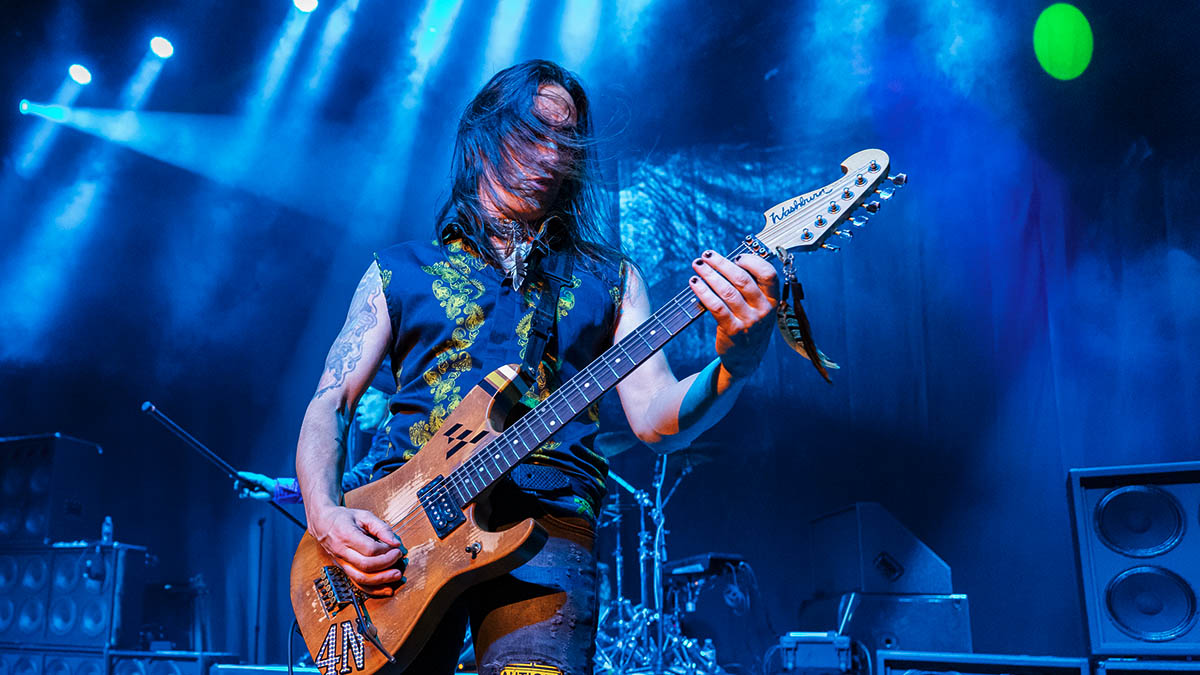
GUITAR SHOWCASE 2023: Nuno Bettencourt’s peerless derring-do on the electric guitar – the string skipping, the elastic legato – are the stuff of legend, but the Extreme guitarist has a super-premium hard-rock tone that is reference quality for any aspiring shredder.
He has the juiciness, the effervescence, and he has it without putting together a spaceship pedalboard. Here, he checks in with Total Guitar to share his tone philosophy, and once more reminds us that when it comes to tone you are your own secret weapon.
How much does the gear you use inform the music you make?
“I’ll be backstage playing through this small Blackstar amp in the dressing room. And it sounds so good the sound guy will walk in and say, ‘Can we just mic that fucking thing up?!’ And then Steve Vai might come in and it will instantly turn into his sound.
“We know amps and guitars are important, but your own DNA is bigger than that. You end up realising that amps and pedals aren’t there to elevate our playing, they’re there to get out of the way of our playing. We all know what we sound like in our heads. That’s what you want to come out of the speakers.”
So gear can be a hindrance, in certain situations?
“Yeah! Sometimes your tone can get in the way of what you’re trying to say. You hear Eddie Van Halen on the first four or five albums and then you hear inklings of other effects and stereo splits on the later records, and it became something different.
Get The Pick Newsletter
All the latest guitar news, interviews, lessons, reviews, deals and more, direct to your inbox!
“For me, it was all about raw Eddie, because he was just plugged in, with nothing else getting in the way. When you start processing things it can get lost a bit. If I use a delay or phaser, it has to colour what I’m doing rather than change what I’m doing. It’s got to be a nuance effect.”
When you start processing things it can get lost a bit. If I use a delay or phaser, it has to color what I’m doing rather than change what I’m doing
But you use certain guitar amps for a reason, right?
“The amp you play through matters a bit but not hugely. For me right now, I happen to have a Marshall DSL in the studio that I like. But in a way, I’m not using DSLs, I’m just using one I like… there are a lot that I didn’t like. It was the same with [third Extreme album] III Sides To Every Story – when I found the right Soldano head to interpret what my fingers were doing in 1993.
“Whenever I’m making music, I want something that doesn’t get in the way of my DNA. I like hearing my personality come through. Even Zakk Wylde, when he’s putting on the craziest effects and that crazy vibrato that sounds like two fretboard’s worth, he still cuts through. It’s all about making the gear work for you!”
You’ve always loved your Rat pedal, which is quite untypical for more technically ambitious shredder-type guitarists…
“Yeah, I always love going straight in except for that Rat pedal I have. It’s supposed to be a distortion pedal but the distortion is all the way off. I find it just tightens my bottom-end. I don’t know one amp, from Marshall to Mesa/Boogie and everybody else, that has enough chunkiness to it without this pedal.
“Sure, you can get it when you play detuned or chordal heavy metal stuff like Metallica, but how do you do it when it’s a single-note riff? Like a funkier song, let’s say Suzi (Wants Her All Day What?) off Extreme II: Pornograffitti. I’m the only guitar player in the band so I wanted keep it muted and sound big. The only way to get the response I needed was with the Rat pedal.
“It’s been there since day one and it ain’t going anywhere. I’ve tried playing without it and fuckin’ hated it. Other players think it’s not doing anything and would probably wonder if the battery is dead [laughs]. It doesn’t change a single thing except for the tightness of the bass frequencies.”
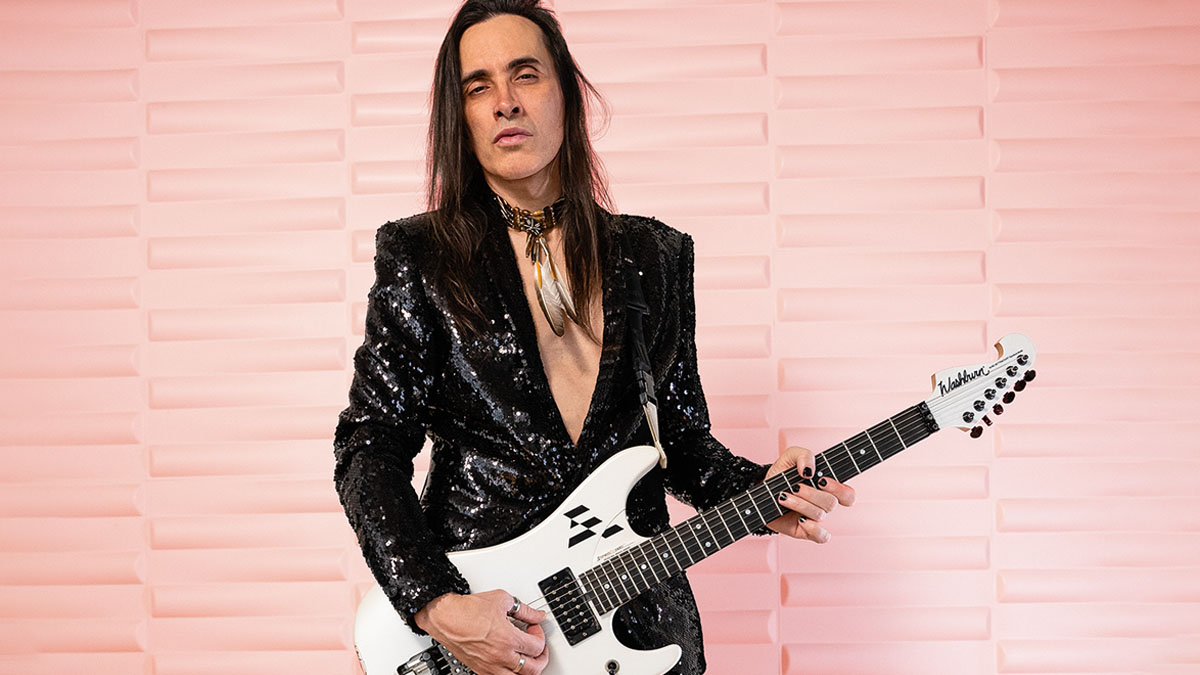
Is there any anything else that’s really important to your tone?
“Other than that, I might use some chorus on certain songs. I still use a Boss GT pedalboard, though the model has changed through the years. I love the way they sound. Some of those multi-effects can be a bit glitchy with a slight delay while you play. The Boss units are the only ones I’ve found that don’t get in the way, and I always use them through the loop.
“The only thing I might use in front other than the Rat is a Boss octave pedal. And for some reason, it’s not because Eddie Van Halen passed away, I’ve been using my MXR Phase 90 a lot recently. I used to struggle with them back in the day, because they not only sound like Eddie, there’s also a lot of suction.
“I like making that kind of sound with my fingers. I try to make my solos talk – that whole world in between harmonics and other noises – using just my hands. I took a lot of that from George Lynch and Warren DeMartini. That era of guitar players did it really well.”
- Six is out now via earMusic
Amit has been writing for titles like Total Guitar, MusicRadar and Guitar World for over a decade and counts Richie Kotzen, Guthrie Govan and Jeff Beck among his primary influences as a guitar player. He's worked for magazines like Kerrang!, Metal Hammer, Classic Rock, Prog, Record Collector, Planet Rock, Rhythm and Bass Player, as well as newspapers like Metro and The Independent, interviewing everyone from Ozzy Osbourne and Lemmy to Slash and Jimmy Page, and once even traded solos with a member of Slayer on a track released internationally. As a session guitarist, he's played alongside members of Judas Priest and Uriah Heep in London ensemble Metalworks, as well as handled lead guitars for legends like Glen Matlock (Sex Pistols, The Faces) and Stu Hamm (Steve Vai, Joe Satriani, G3).
“Tom would say, ‘Play your guitar with a car key.’ It was very experimental”: Little Feat's Fred Tackett recalls Tom Waits' left-field approach to guitar playing – and his one-of-a-kind studio sessions
“Seeing friends and heroes of mine having their solos plagiarized broke my heart”: Giacomo Turra used their solos note-for-note for his own viral content. Now the guitarists who had their playing “stolen” are speaking out








